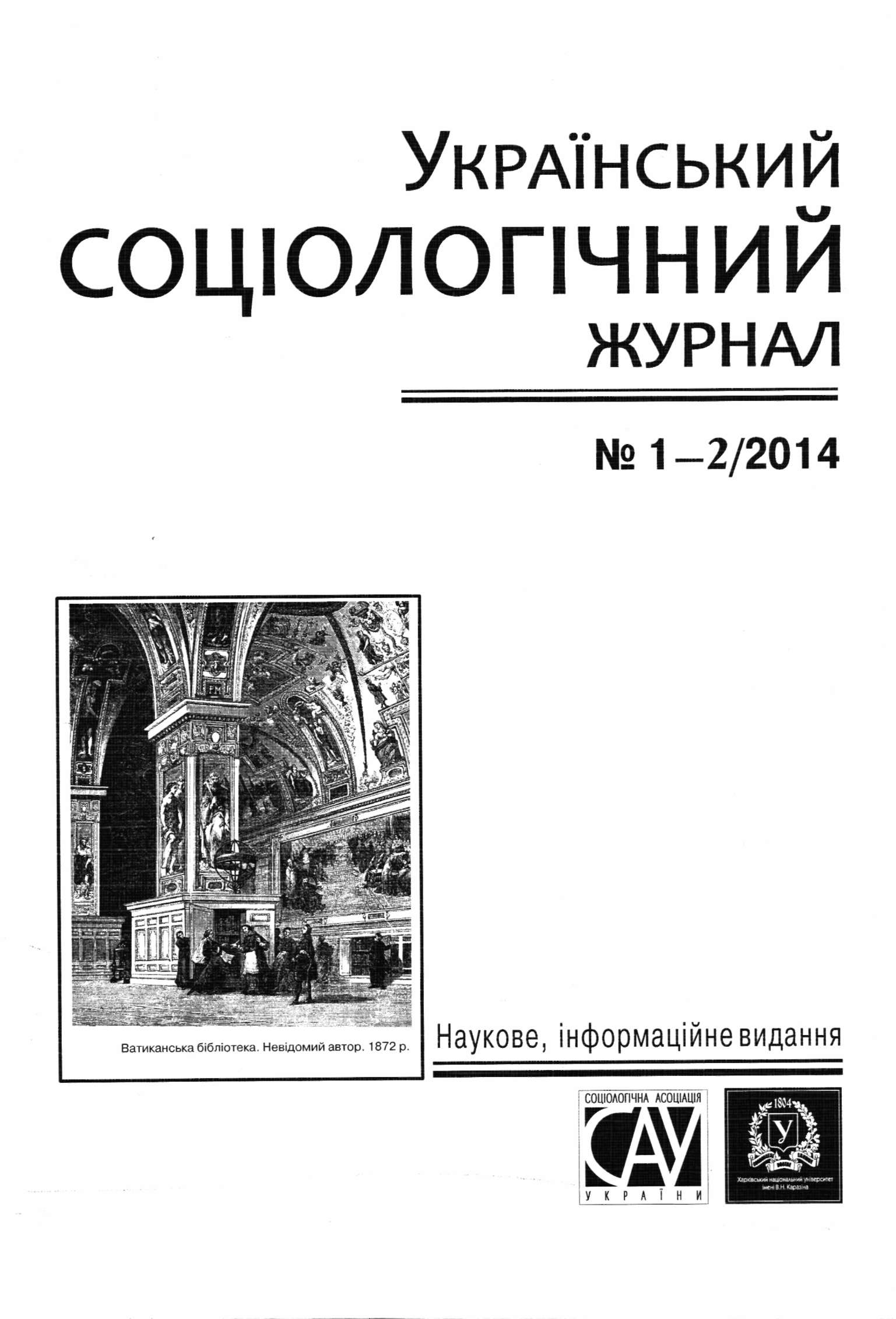The «two Donbasses» phenomenon: the vectors of collective consciousness development of Donbass different parts` population in conditions of the hybrid war
Abstract
The article analyzes the development of the collective consciousness in the Eastern Ukraine in connection with the events of the Russian-Ukrainian hybrid war. It is suggested that the Donbass is the artificial regional structure which at the time corresponded to the communist government policy in Ukraine. The internal heterogeneity of the Donetsk and Lugansk regions fully manifested in the phenomenon of «two Donbasses». In particular, as evidenced by the data of mass survey on the territory under the control of Ukraine, conducted in early 2015 by the initiative of Ukrainian peacekeeping school (N = 1200), the improvement of the mass consciousness on the returned territories is observed. Pro-Ukrainian sentiments are dominating, the sense of citizenship (84% of respondents feel themselves to be citizens of Ukraine «completely» or «substantially») is renewing. The fundamental differences in sentiments of ethnic Ukrainians and ethnic Russian not found. The leader of trust is the volunteer movement, the Armed Forces of Ukraine have a high enough confidence index (at the level of trust in the church). Other trends in the mass consciousness are observed in the occupied territories. Thus, we have the phenomenon of «Lugansk syndrome» (a term proposed by prof. I. Kononov), the sentiments of dependency became widespread, the Sovietization of consciousness against the background of the artificial isolation of the region is observed. The syndrome of social madness and anomie (the phenomenon of spring 2014) is transformed into social apathy and readiness to accept any authority which guarantees peace, work, and retirement.
Downloads
References
Кононов І. Ф. Луганський синдром як масова аномічна реакція на розгортання гібридної війни / І. Ф. Кононов // Девіантна поведінка: соціологічний, психологічний та юридичний аспекти: матеріали наук.-практ. конф. (Харків, 10 квітня 2015 р.) / МВС України, Харківський національний університет внутрішніх справ. – Х. : ХНУВС, 2015. – С. 10-16.
Поклад В. И. Социально-психологические предпосылки сепаратизма на Луганщине / В. И. Поклад // Девіантна поведінка: соціологічний, психологічний та юридичний аспекти: матеріали наук.-практ. конф. (Харків, 10 квітня 2015 р.) / МВС України, Харківський національний університет внутрішніх справ. – Х. : ХНУВС, 2015. – С. 17-23.
Головаха Е. И. / Е. И. Головаха , Н. В. Панина // Социальное безумие. История, теория, современная практика. – К., 1994.
Чи властиві українцям настрої сепаратизму? [Електронний ресурс]. – Режим доступу : http: // www.dif.org.ua/ua/events/nkdfkedlkrjgkje.htm/




